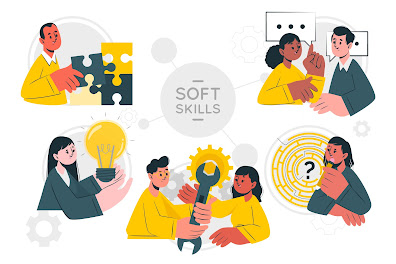The Art of Vocational Assessment: A Guide for Assessors
Introduction
Vocational assessments play a crucial role in helping individuals discover and pursue meaningful career paths. As assessors, your responsibility is significant, guiding individuals toward suitable vocations based on their skills, interests, and abilities. Conducting a thorough and effective vocational assessment requires a delicate balance of empathy, professionalism, and practical knowledge. In this blog, we'll explore best practices and challenges faced by assessors, shedding light on how to enhance the assessment process.
Best Practices for Vocational Assessors
1. Establishing a Trusting Relationship:
One of the foundations of a successful vocational assessment is building trust with the individual being assessed. Make an effort to create a comfortable and non-judgmental environment where they feel free to express their thoughts, concerns, and aspirations. This trust forms the basis for open communication throughout the assessment process.
2. Active Listening:
Effective communication begins with active listening. Pay close attention to verbal and non-verbal cues, and encourage individuals to share their experiences, preferences, and challenges. This information will be crucial in tailoring the assessment to their unique needs.
3. Comprehensive Information Gathering:
To conduct a thorough assessment, gather information from various sources. Utilize interviews, standardized tests, work samples, and observations to acquire a holistic understanding of the individual's capabilities, interests, and values. This comprehensive approach helps in crafting a more accurate vocational profile.
4. Utilizing Standardized Assessments:
Incorporate validated and reliable standardized assessments to evaluate cognitive abilities, aptitudes, and personality traits. These tools provide a structured framework and objective data, enhancing the accuracy of your assessment. However, always remember that no single test can capture the entirety of an individual's potential.
5. Collaborating with Support Networks:
Engage with the individual's support network, including family, friends, and educators. Their insights can provide valuable context and contribute to a more well-rounded assessment. Collaborative efforts ensure a more holistic understanding of the individual's strengths and challenges.
Challenges Faced by Vocational Assessors
1. Overcoming Stereotypes and Bias:
Assessors must be vigilant in recognizing and overcoming personal biases and stereotypes that may influence their judgments. A fair and unbiased assessment is crucial for ensuring that individuals are not limited by preconceived notions based on factors such as gender, ethnicity, or socioeconomic status.
2. Adapting to Diverse Learning Styles:
Individuals have unique learning styles, and assessing them requires flexibility. Be prepared to adapt your assessment methods to accommodate diverse learning preferences. Some may excel in hands-on tasks, while others may perform better in written assessments. Recognizing and accommodating these differences is essential for an accurate evaluation.
3. Balancing Standardization and Individualization:
While standardized assessments provide valuable data, it's crucial to balance them with individualized approaches. Tailor your assessment methods to account for the individual's background, experiences, and cultural context. A one-size-fits-all approach may not capture the nuances of each person's vocational potential.
4. Addressing Limited Resources:
Assessors often face challenges related to limited resources, including time constraints and access to various assessment tools. It's essential to be resourceful and prioritize the most relevant assessments without compromising the quality of the evaluation. Building a network of resources and staying updated on available tools can help address these challenges.
Conclusion
Conducting a thorough and effective vocational assessment is a multifaceted endeavor that requires a combination of skills, empathy, and adaptability. By implementing best practices such as building trust, active listening, and utilizing a variety of assessment tools, assessors can enhance the accuracy of their evaluations. Additionally, addressing challenges related to biases, diverse learning styles, and limited resources is crucial for providing fair and comprehensive vocational guidance. As assessors, your role is instrumental in empowering individuals to make informed decisions about their careers, ultimately contributing to their personal and professional fulfillment.

.jpg)


Comments
Post a Comment